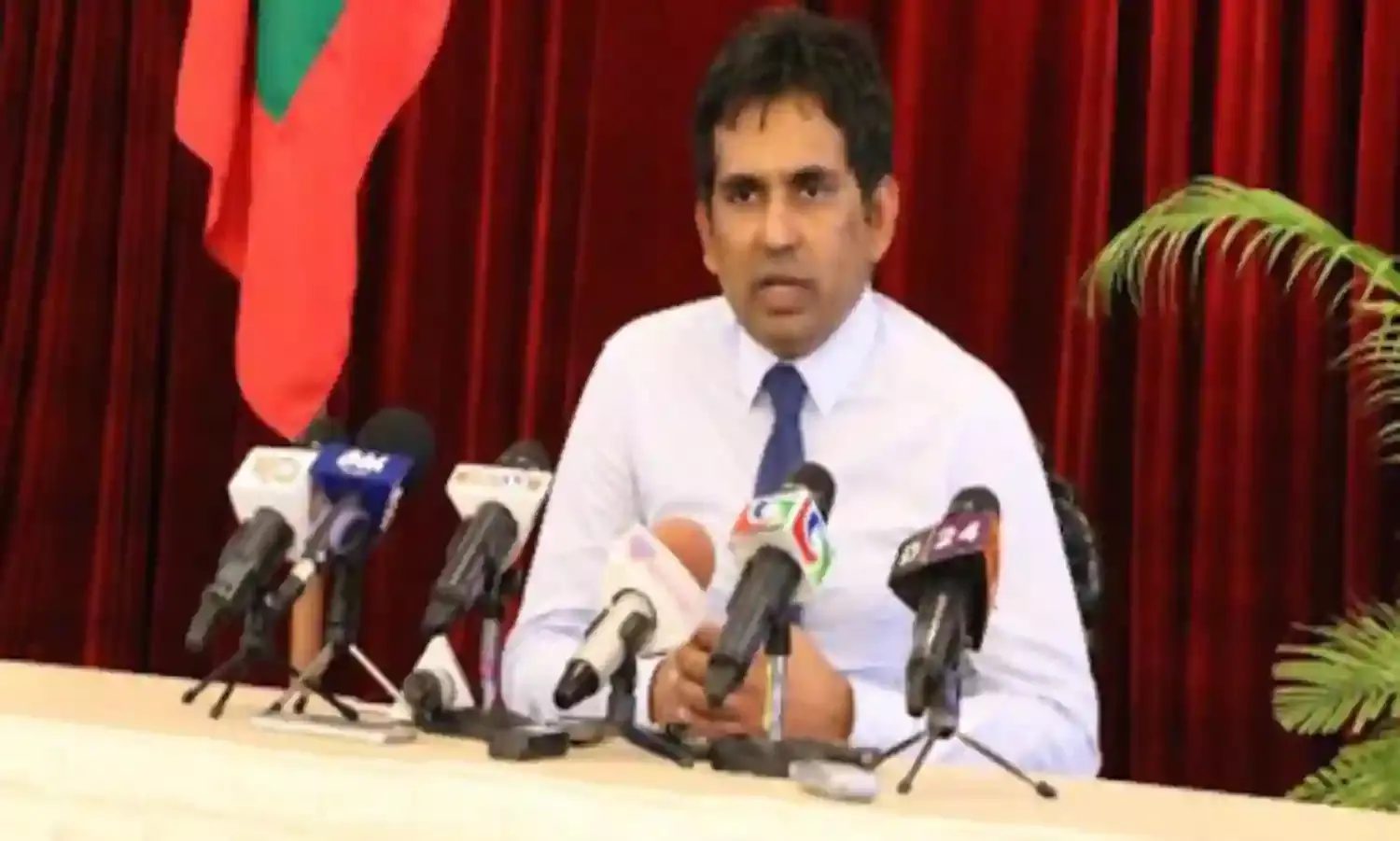Maldivian Govt and Opposition Split Over FTA With China
Maldivian Govt and Opposition Split Over FTA With China
COLOMBO: The Maldivian government and the opposition Maldivian Democratic Party (MDP) are split over the China-Maldives Free Trade Agreement (FTA) which got parliamentary approval in a controversial manner on Wednesday.
Economics Minister Mohamed Saeed told the media that the FTA has opened the world’s biggest market for Maldivian fish and fish products at zero duty and described the pact as “historic”.
The country’s principal exports are fish and fish products. In 2016, the grand total value of fish exports was US$ 121,544, 413.
Saeed insisted that the FTA has been designed to favor the Maldives more than China. Over 400 Maldivian products will stand to benefit, he added.
But according to MDP leader Mohamed Nasheed, that the pact will only lead to an increase in the already yawning trade gap between the Maldives and China.
In 2016, China exported to the Maldives, goods valued at US$ 285, 640,637. But the Maldives’ total exports to the world was only US$ 139, 592, 790.
According to Nasheed, 70 percent of Maldives’ foreign debt is owed to China, on which interest alone “is more than 20% of the Maldivian budget.”
Be that as it may, one cannot ignore the fact that China is the biggest investor in the Maldives. Chinese investments account for US$ 2.37 billion in a total FDI of US$ 3.22 billion.
Dr. Abdulla Khaleel, a ruling Progressive Party of the Maldives (PPM) MP, said in article in Avas that criticism of China’s investment in the Maldives and other Third World countries is not well founded as it is based on the belief that Chinese investments are, by definition bad, in sharp contrast to Western investments. Criticism of Chinese aid or investment is part of the general anti-Chinese rhetoric, he contends.
“This scare mongering has found fertile ground amongst conspiracy theorists who see Chinese investments in the Maldives as a rebuke to India. This is deeply simplistic. India has always been the primary partner of the Maldives.”
“The India-Maldives bilateral relationship, ranging from security to health to trade, was reaffirmed this year. President Abdulla Yameen travelled to India in April followed by the Foreign Minister’s visit in August. Relations remain open, cordial and fruitful. Cooperation on security, intelligence and trade continues. Brand new roads are being built on Hulhumale’ by an Indian construction company, “ Khaleel points out.
India’s exports to the Maldives are just a wee bit lower than China’s. In 2016, Indian exports to the Maldives were valued at US$ 275,665, 477, while China’s were valued at US$ 285, 640, 637.
“There has never been any nefarious activity related to the increase in Chinese investment in the Maldives. Yes, Male’ is a key port in China’s Maritime Silk Road project. But if their interest in the strategic location of the Maldives leads to much-needed infrastructure investment, why is this negative for the Maldives?,” Khaleel wonders.
“It is essential that the Maldives improves its infrastructure, especially in the tourist sector. Tourism is the biggest contributor to the Maldivian economy. Much of the required infrastructure is indeed being built or financed by Chinese companies. As an example one can give the project to build a bridge to connect Male’ and its international airport. China’s EXIM bank has also provided financing for other key projects,” he says.
However, the MDP’s grouse is that the FTA was rushed through parliament.
“The Speaker of parliament had called for an emergency sitting, to pass the FTA with China. The Agreement was sent to the Parliamentary Oversight Committee on National Security Affairs within 3 minutes of submission to the floor. The committee vetting the agreement took less than 10 minutes to give its approval,” the MDP said in a press release on Wednesday.
“The committee was conducted against parliamentary norms, with deliberations closed off for the public and to the media. Despite requests, the MPs were not given access to the document in order to review it before passing. The government allowed for less than an hour for the entire parliamentary process to approve the 1000 plus page document.”
“The agreement contained a number of technical details that should have been thoroughly reviewed, and required consultation with the business community.”
“Furthermore , it was approved with just 30 votes, in another late evening session of parliament. The Constitution requires 43 MPs to be attending to pass legislation on this. The government thus does not have the required votes,” the MDP said.
The opposition party called upon the government to suspend the implementation of the FTA until a proper feasibility study is conducted to ensure that it is in the best interest of the Maldives economically “and also to ensure that the agreement does not place Maldives in a geo-politically vulnerable position.”
(Cover Photograph of Maldive’s Economic Development Minister Mohammad Saeed)





